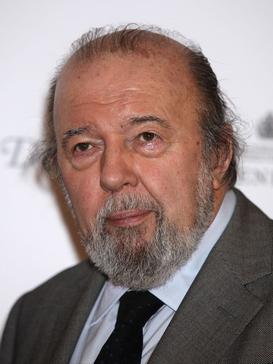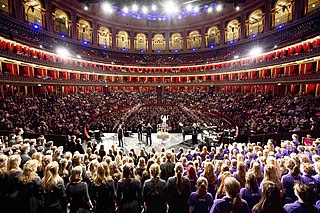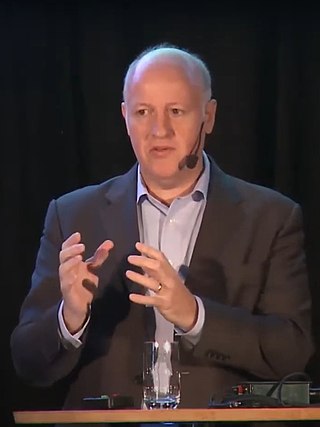Related Research Articles

George FridericHandel was a German-British Baroque composer well known for his operas, oratorios, anthems, concerti grossi, and organ concertos. Handel received his training in Halle and worked as a composer in Hamburg and Italy before settling in London in 1712, where he spent the bulk of his career and became a naturalised British subject in 1727. He was strongly influenced both by the middle-German polyphonic choral tradition and by composers of the Italian Baroque. In turn, Handel's music forms one of the peaks of the "high baroque" style, bringing Italian opera to its highest development, creating the genres of English oratorio and organ concerto, and introducing a new style into English church music. He is consistently recognized as one of the greatest composers of his age.

Henry Purcell was an English composer of Baroque music.

Sir John Barbirolli was a British conductor and cellist. He is remembered above all as conductor of the Hallé Orchestra in Manchester, which he helped save from dissolution in 1943 and conducted for the rest of his life. Earlier in his career he was Arturo Toscanini's successor as music director of the New York Philharmonic, serving from 1936 to 1943. He was also chief conductor of the Houston Symphony from 1961 to 1967, and was a guest conductor of many other orchestras, including the BBC Symphony Orchestra, London Symphony Orchestra, the Philharmonia, the Berlin Philharmonic and the Vienna Philharmonic, with all of which he made recordings.

The Royal Opera House (ROH) is an opera house and major performing arts venue in Covent Garden, central London. The large building is often referred to as simply Covent Garden, after a previous use of the site. It is the home of The Royal Opera, The Royal Ballet, and the Orchestra of the Royal Opera House. The first theatre on the site, the Theatre Royal (1732), served primarily as a playhouse for the first hundred years of its history. In 1734, the first ballet was presented. A year later, the first season of operas, by George Frideric Handel, began. Many of his operas and oratorios were specifically written for Covent Garden and had their premieres there.
Raymond John Leppard was a British-American conductor, harpsichordist, composer and editor. In the 1960s, he played a prime role in the rebirth of interest in Baroque music; in particular, he was one of the first major conductors to perform Baroque opera, reviving works by Claudio Monteverdi and Francesco Cavalli. He conducted operas at major international opera houses and festivals, including the Glyndebourne Festival where he led the world premiere of Nicholas Maw's The Rising of the Moon, the Metropolitan Opera and the Royal Opera House. He composed film scores such as Lord of the Flies and Alfred the Great.

Sir Peter Reginald Frederick Hall CBE was an English theatre, opera and film director. His obituary in The Times declared him "the most important figure in British theatre for half a century" and on his death, a Royal National Theatre statement declared that Hall's "influence on the artistic life of Britain in the 20th century was unparalleled". In 2018, the Laurence Olivier Awards, recognizing achievements in London theatre, changed the award for Best Director to the Sir Peter Hall Award for Best Director.

The Edinburgh International Festival is an annual arts festival in Edinburgh, Scotland, spread over the final three weeks in August. Notable figures from the international world of music and the performing arts are invited to join the festival. Visual art exhibitions, talks and workshops are also hosted.

His Majesty's Theatre is a West End theatre situated in the Haymarket in the City of Westminster, London. The building, designed by Charles J. Phipps, was constructed in 1897 for the actor-manager Herbert Beerbohm Tree, who established the Royal Academy of Dramatic Art (RADA) at the theatre. In the early decades of the 20th century Tree produced spectacular productions of Shakespeare and other classical works, and the theatre hosted premieres by such playwrights as Bernard Shaw, J. M. Synge and, later, Noël Coward and J. B. Priestley. Since the First World War the wide stage has made the theatre suitable for large-scale musical productions, and His Majesty's has accordingly specialised in hosting musicals. It has been home to record-setting musical theatre runs such as the First World War hit Chu Chin Chow and Andrew Lloyd Webber's The Phantom of the Opera, which has run at His Majesty's since 1986, except during the COVID-19 pandemic theatre closures.

Peter Grimes, Op. 33, is an opera in three acts by Benjamin Britten, with a libretto by Montagu Slater based on the section "Peter Grimes", in George Crabbe's long narrative poem The Borough. The "borough" of the opera is a fictional small town that bears some resemblance to Crabbe's – and later Britten's – home of Aldeburgh, Suffolk, on England's east coast.
Sir John Michael Pritchard, was an English conductor. He was known for his interpretations of Mozart operas and for his support of contemporary music.
Sir Simon Keenlyside is a British baritone who has performed in operas and concerts since the mid-1980s.

The Royal Opera is a British opera company based in central London, resident at the Royal Opera House in Covent Garden. Along with English National Opera, it is one of the two principal opera companies in London. Founded in 1946 as the Covent Garden Opera Company, the company had that title until 1968. It brought a long annual season and consistent management to a house that had previously hosted short seasons under a series of impresarios. Since its inception, it has shared the Royal Opera House with the dance company now known as The Royal Ballet.
Sir Reginald Goodall was an English conductor and singing coach noted for his performances of the operas of Richard Wagner and for conducting the premieres of several operas by Benjamin Britten.
Sir John Rowland Tomlinson is an English opera singer, specifically a bass.

Classical music of the United Kingdom is taken in this article to mean classical music in the sense elsewhere defined, of formally composed and written music of chamber, concert and church type as distinct from popular, traditional, or folk music. The term in this sense emerged in the early 19th century, not long after the United Kingdom of Great Britain and Ireland came into existence in 1801. Composed music in these islands can be traced in musical notation back to the 13th century, with earlier origins. It has never existed in isolation from European music, but has often developed in distinctively insular ways within an international framework. Inheriting the European classical forms of the 18th century, patronage and the academy and university establishment of musical performance and training in the United Kingdom during the 19th century saw a great expansion. Similar developments occurred in the other expanding states of Europe and their empires. Within this international growth the traditions of composition and performance centred in the United Kingdom, including the various cultural strands drawn from its different provinces, have continued to evolve in distinctive ways through the work of many famous composers.
Sir Thomas Boaz Allen is an English operatic baritone. He is widely admired in the opera world for his voice, the versatility of his repertoire, and his acting—leading many to regard him as one of the best lyric baritones of the late 20th century. In October 2011, he was appointed Chancellor of Durham University, succeeding Bill Bryson.
David Matthias Lloyd-Jones was a British conductor who specialised in British and Russian music. In 1978 he was a co-founder of Opera North, conducting 50 productions during the 12 years he was there, and was also an editor and translator, especially of Russian operas.

National Youth Choir (NYC), formerly known as the National Youth Choirs of Great Britain and the British Youth Choir, is a family of choirs for outstanding young singers, and those with outstanding potential, in the United Kingdom. It comprises a total of five choirs for around 900 young people between the ages of 9 and 25:

Baroque music of the British Isles bridged the gap between the early music of the Medieval and Renaissance periods and the development of fully fledged and formalised orchestral classical music in the second half of the eighteenth century. It was characterised by more elaborate musical ornamentation, changes in musical notation, new instrumental playing techniques and the rise of new genres such as opera. Although the term Baroque is conventionally used for European music from about 1600, its full effects were not felt in Britain until after 1660, delayed by native trends and developments in music, religious and cultural differences from many European countries and the disruption to court music caused by the Wars of the Three Kingdoms and Interregnum. Under the restored Stuart monarchy the court became once again a centre of musical patronage, but royal interest in music tended to be less significant as the seventeenth century progressed, to be revived again under the House of Hanover. The Baroque era in British music can be seen as one of an interaction of national and international trends, sometimes absorbing continental fashions and practices and sometimes attempting, as in the creation of ballad opera, to produce an indigenous tradition. However, arguably the most significant British composer of the era, George Frideric Handel, was a naturalised German, who helped integrate British and continental music and define the future of music in the United Kingdom.

Peter Daszak is a British zoologist, consultant and public expert on disease ecology, in particular on zoonosis. He is the president of EcoHealth Alliance, a nonprofit non-governmental organization that supports various programs on global health and pandemic prevention. He is also a member of the Center for Infection and Immunity at the Columbia University Mailman School of Public Health. He lives in Suffern, New York.